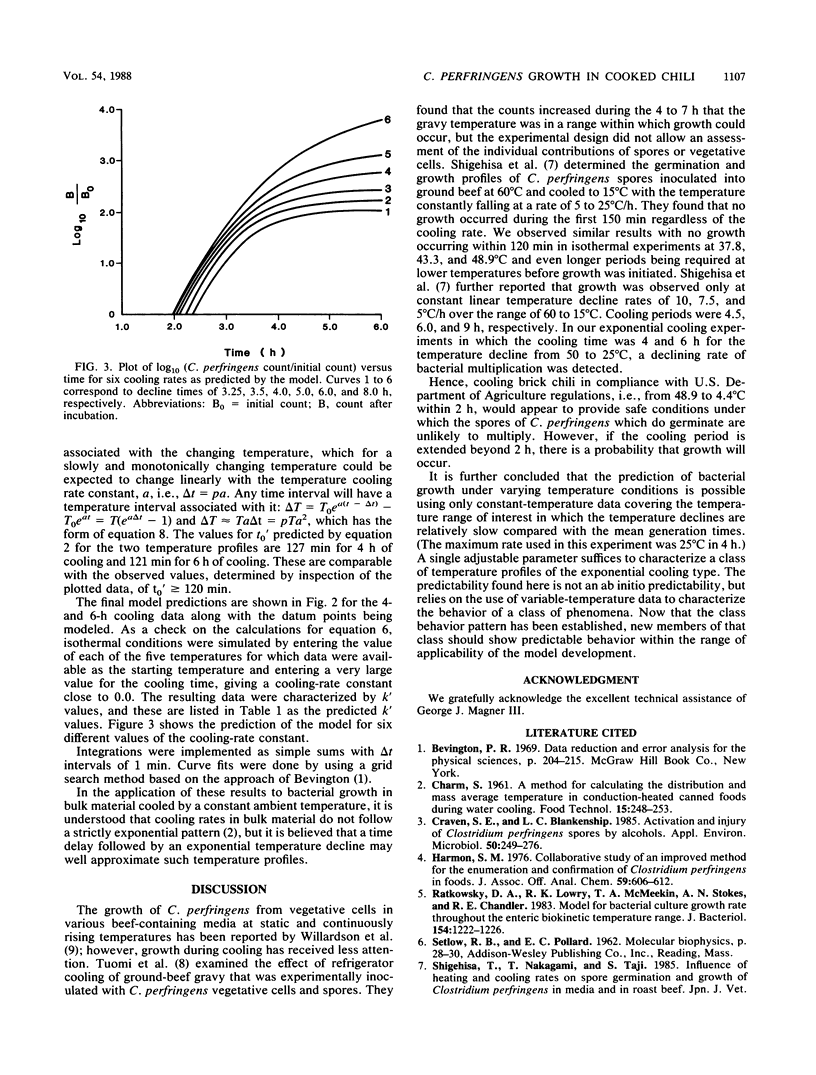Abstract
U.S. Department of Agriculture regulations require that brick chili be cooled from 48.9 degrees C to 4.4 degrees C within 2 h of cooking, but processors may not always be able to comply. Studies were conducted to evaluate the extent of bacterial multiplication resulting from outgrowth of germinated Clostridium perfringens spores experimentally inoculated into chili and incubated at various temperatures. Inoculated samples were heated (75 degrees C for 20 min) to activate spores, quickly equilibrated, and held at one of five desired temperatures for 6 h. No growth was observed for C. perfringens in samples held at 26.7 degrees C and below for 6 h, but growth was observed by 6 h in samples held at 32.2 degrees C and after 2 h in samples held at temperatures between 37.8 degrees C and 48.9 degrees C. Using isothermal growth data, we developed a simple model for predicting the growth of bacteria with time under exponential cooling conditions. The model predicts both the lag phase and the numbers of bacteria at specific times during the growth phase. It was developed by using isothermal growth data and tested by using temperature-varying growth data from experiments with spores of C. perfringens in chili. Actual data agreed closely with predicted results. The results should be useful for evaluating the hazard potential for growth of C. perfringens in chili.
Full text
PDF




Selected References
These references are in PubMed. This may not be the complete list of references from this article.
- Craven S. E., Blankenship L. C. Activation and injury of Clostridium perfringens spores by alcohols. Appl Environ Microbiol. 1985 Aug;50(2):249–256. doi: 10.1128/aem.50.2.249-256.1985. [DOI] [PMC free article] [PubMed] [Google Scholar]
- Harmon S. M. Collaborative study of an improved method for the enumeration and confirmation of Clostridium perfringens in foods. J Assoc Off Anal Chem. 1976 May;59(3):606–612. [PubMed] [Google Scholar]
- Ratkowsky D. A., Lowry R. K., McMeekin T. A., Stokes A. N., Chandler R. E. Model for bacterial culture growth rate throughout the entire biokinetic temperature range. J Bacteriol. 1983 Jun;154(3):1222–1226. doi: 10.1128/jb.154.3.1222-1226.1983. [DOI] [PMC free article] [PubMed] [Google Scholar]


